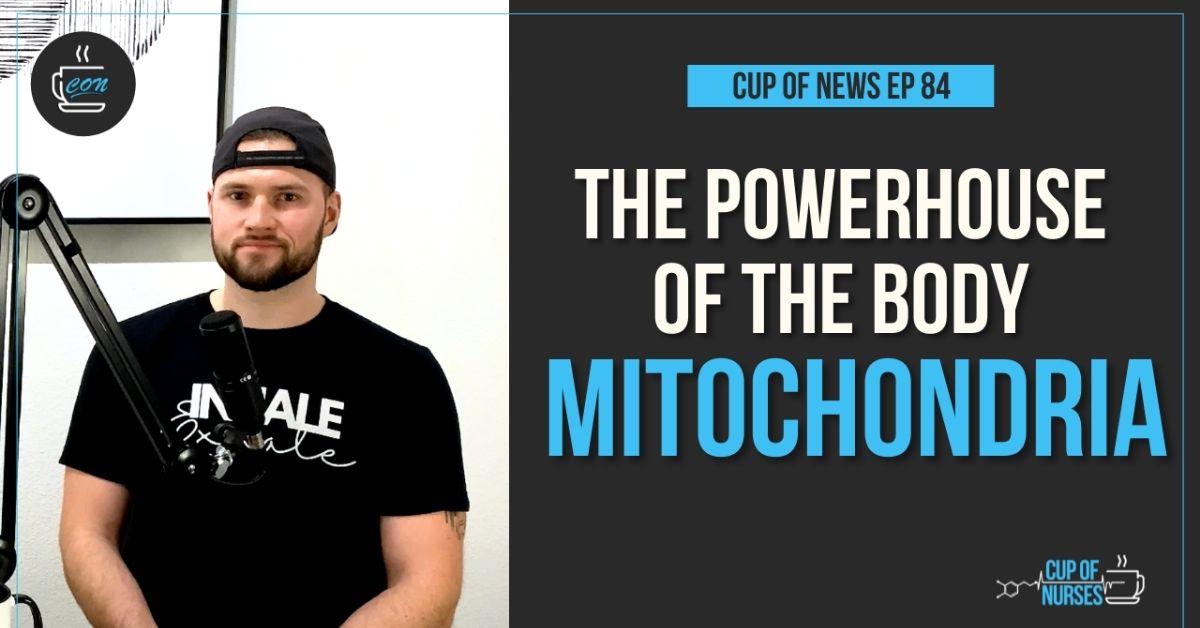The Powerhouse of the Body – Mitochondria
Facts and Functions of Mitochondria
Fun fact:
Mitochondria is the only other organelle in the cell (outside the nucleus) to contain a copy of your genetic code.
Scientists have been inspired to improve their knowledge about mitochondria. They have also studied its function outside energy production using that knowledge. It turns out that mitochondria are multifunctioning organelles.
Functions:
- Play a vital role in the aging process, and most age-related diseases
- Are vital to cell health, including regulating how nutrients get into individual cells
- Help maintain the integrity of a cell – The energy it produces is used for growth and cell functions but is also targeted to help heal and recycle other outdated parts.
- They help in the immune function – help activate various antiviral and anti-inflammatory pathways to help fight pathogens.
- Regulating cell death – is an essential system designed to help destroy infected or damaged cells.
Clearly, without a healthy set of mitochondria, your ability to lead a healthy life can be significantly reduced. It is why establishing a healthy, resilient line of mitochondria is so important to optimize your well-being.
Here are a few tips you can take away to improve the power of your mitochondria [2].
1. Get active
Fun fact, you can increase the number of mitochondria within you simply through regular exercise. When your body notices a new routine in your fitness, it works to generate more energy and helps your body to adapt to changes in stress and the environment.
Abundance in the power of your mitochondria means more stamina and the more remarkable ability to allocate resources to healing after a heavy workout.
2. Eat the right foods
Your diet is so crucial to mitochondrial health. The key is to eat enough nutrient-rich foods. Think about it this way; you’re gathering and improving natural resources used to create energy.
It provides access to antioxidants that help neutralize the toxic by-products associated with normal energy production.
3. Decrease inflammation
4. Focus on Quality Sleep
Viome Results on Mitochondrial Health
In May of 2021, I was able to analyze my gut and cellular health to see what is my mitochondria health. My score was 50/100.
Reference ranges:
- Not Optimal
- 0 to 40, which represents 19.0% of the Viome population
- Average
- 41 to 65, which means 79.0% of the Viome population
- Good
- 66 to 100, which represents 2.0% of the Viome population
How are the scores calculated?
Mitochondrial Biogenesis Pathways – Mitochondrial Biogenesis Pathways score assesses the activity levels of molecular pathways needed to biologically generate and maintain the cellular functions of your mitochondria to meet your body’s energy and metabolic demands.
It includes PGC1-alpha signaling – known as the master regulator of mitochondrial biogenesis.
If the score is not optimal, it implies insufficient activity in the mitochondria support functions. It could be due to excessive oxidative stress or a deficiency in specific nutrients.
This deficiency serves as cofactors needed for the mitochondria biogenesis pathways.
Energy Production Pathways – The Energy Production Pathways score evaluates the efficiency of your cell’s ability to convert carbohydrates (glucose) into energy molecules that fuel our cells (otherwise known as ATP).
If the score is low, your mitochondrial metabolic activity is sluggish. It could use a little boost from the molecular targets and vitamins. It can also come from a cofactor or coenzyme supplements like:
- CoQ1,
- NAD+ precursors
- L-Carnitine
- Various activators of AMPK (an activator of metabolic pathways, which stimulates mitochondrial ATP production).
My Personalized Supplements to Support Mitochondrial Health
To watch the full Episode 84, check out our video below! Let’s all learn about mitochondria here 👇
TIME STAMPS:
0:00 Introduction
0:49 Cup of Nurses Introduction
2:42 Episode Introduction
2:55 The Powerhouse of the Body – Mitochondria
9:21 What are the functions of the Mitochondria?
11:58 Improve Your Mitochondria: Get Active
14:55 Improve Your Mitochondria: Eat the right foods
15:43 Improve Your Mitochondria: Decrease Inflammation
17:18 Improve Your Mitochondria: Focus on Quality Sleep
20:57 Viome Results on Mitochondrial Health
22:58 How Viome Scores are Calculated
29:20 Personalized Supplements to Support Mitochondrial Health
29:34 Supplement: Ashwagandha Root & Leaf Extract
29:47 Supplement: Curcumin
30:12 Supplement: Magnesium
31:14 Supplement: L-Theanine
33:48 Supplement: Vitamin B3

